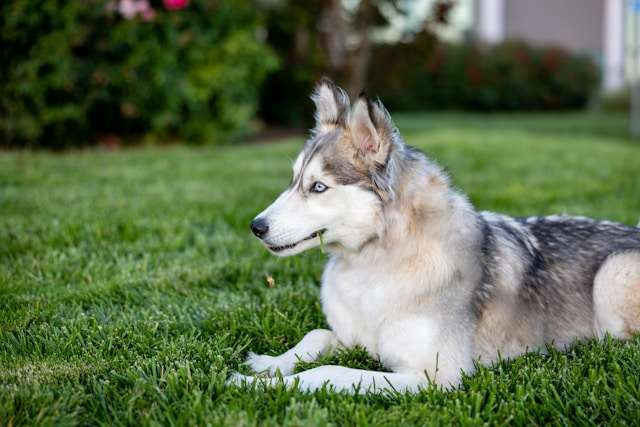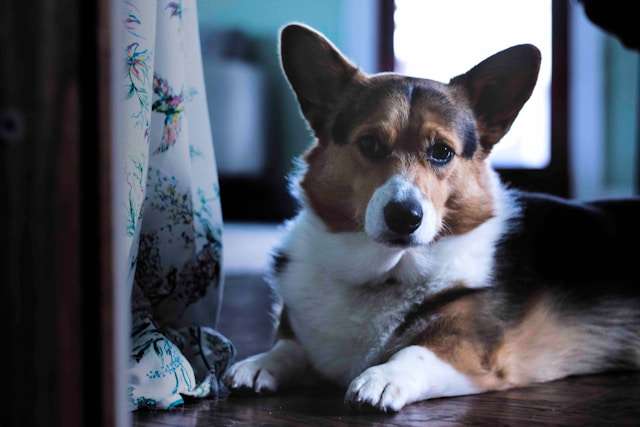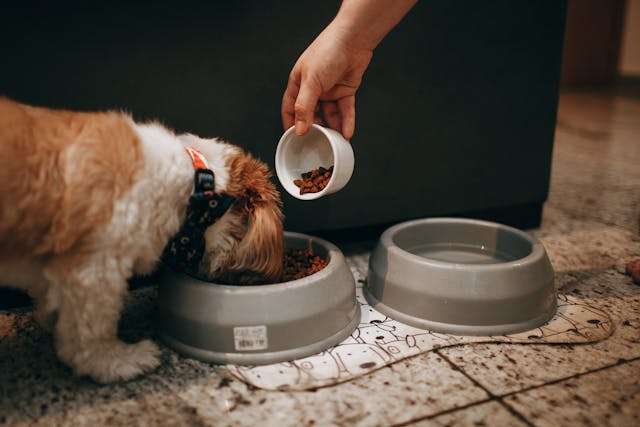Best Small Dog Breeds for Families with Kids [Updated for 2024]

Best Small Dog Breeds for Families with Kids. Finding a small dog breed that’s a perfect fit for your family can be exciting but challenging. Luckily, many breeds are gentle, playful, and patient with children—essential for a harmonious home. Whether you’re looking for a cuddly breed or one that loves outdoor playdates, there’s something for everyone.
Choosing the right pup will ensure happy moments for years to come. For more insights on matching a breed to your family’s lifestyle, explore dog-breeds-discover-the-best-types-for-every-lifestyle.
Table of Contents
Why Choose Small Dogs for Families with Kids
Choosing a small dog for your family has many benefits, especially when you have kids around. Their compact size, manageable energy levels, and friendly nature make them a top choice. Let’s explain why these pint-sized companions are ideal for families with children.
Space Considerations
A small dog can be a perfect fit if you live in a smaller home or an apartment. Unlike larger breeds, small dogs don’t need as much room to move around and are often content in cozier spaces. Busy families who already feel cramped with toys and school supplies everywhere will appreciate how a small dog can seamlessly fit into their home without taking over.
Plus, many small breeds adapt well to limited outdoor access, making them excellent for urban or suburban living. Looking to learn more about compact breeds? Check out Dog Breed Guide: Find Your Perfect Companion.
Manageable Energy Levels
Small dogs tend to have energy levels that are easier to handle for families with younger children. While all dogs require exercise and stimulation, breeds like the Havanese or the French Bulldog often need shorter walks or play sessions to stay happy.
A quick game of fetch in the living room or a short stroll around the block can be enough for these little guys. This makes it easier to fit their needs into a busy family routine. If you’re interested in a small breed with a playful and manageable nature, consider learning more about the Irresistible Havanese Breed.
For more insights into the benefits of small breed dogs, explore Compact Canines: 6 Big Benefits of Small Breed Dogs.
Safety and Sociability
Safety is always a top concern for families with younger children, and small dogs provide an added layer of comfort. Their smaller size means they’re less likely to knock a child over during play accidentally. Many small breeds are also known for their gentle and social temperaments, which help them bond with kids quickly.
A small dog can become both a playmate and a protector, teaching children about responsibility and the joy of companionship. Remember, supervision is key in ensuring positive interactions between kids and pets. Curious about pet-friendly family dynamics? Discover more with The Joys of Owning a Small Breed Dog.
Small dogs are a fantastic choice for families, combining their adorable looks with practical benefits, making them an excellent match for everyday life.
Top Small Dog Breeds for Families
Choosing a small dog for your family doesn’t just mean getting an adorable companion—it’s about finding the perfect fit for your lifestyle and your kids’ personalities. Below, you’ll discover the best small dog breeds that combine charm, patience, and playfulness, making them ideal for families with kids.
Bichon Frise

Photo by Gundula Vogel.
Families love Bichon Frises for their cheerful and friendly nature. These dogs radiate positivity and are known for their compatibility with children, making them excellent playmates. With their fluffy white coats and curious personalities, they thrive in family environments where love and attention are plentiful. To learn more about this delightful breed, check out Bichon Frise Dog: Essential Guide to This Charming Companion.
For additional insights, visit Bichon Frise Dog Breed Information.
French Bulldog
The French Bulldog, often called a “Frenchie,” combines a playful demeanor with a calm attitude. French Bulldogs are natural entertainers, usually making kids laugh with their silly antics and expressive faces. Best of all, they’re low-maintenance regarding grooming and exercise needs. Frenchies are adaptable to apartment life and outdoor adventures, making them an excellent fit for busy families.
Explore more about their unique traits at French Bulldog Dog Breed Information.
Cavalier King Charles Spaniel
Cavalier King Charles Spaniels are gentle, affectionate, and great with children. Known for their sociable and loving nature, they are often considered the perfect lap dogs. Their adaptability allows them to seamlessly fit into families of all sizes, whether cuddling on the couch or enjoying playful interactions with kids. If you’re searching for a dog that blends tender companionship with a playful spirit, this breed won’t disappoint.
Dive deeper into this breed at Cavalier King Charles Spaniel Dog Breed Information.
Havanese
Havanese dogs are bundles of joy with a playful and social temperament. These little charmers are incredibly affectionate and thrive in households where they can interact with everyone in the family. Kids love the energetic personality of the Havanese, and their intelligence makes them easy to train. The Havanese create endless smiles, whether it’s a game of fetch or cuddles on the couch.
Discover the Best Types for Every Lifestyle 2024 for more about the Havanese, or check out Havanese Dog Breed Information.
Chihuahua
Chihuahuas may be small, but they have big hearts. Renowned for their loyalty and courage, these dogs form deep bonds with their families. They adjust well to active and more relaxed households, making them versatile companions for families with kids. While they love attention, they’re also independent enough to entertain themselves when needed.
Learn more about this unique breed at Are Chihuahuas Good Dogs? Exploring Their Unique Traits or visit Chihuahua Dog Breed Information.
Training and Socializing Small Dogs
Successfully managing the dynamics of busy family life while raising a small dog requires thoughtful training and proper socialization. These steps strengthen the bond between your family and your furry friend and ensure well-rounded behavior that thrives in a home with kids.
Basic Training Techniques
Training small dogs doesn’t have to be overwhelming. Many breeds are incredibly eager to learn, making it an enjoyable process for the whole family. Focus on these essential training tips:
- Start Early: Puppies are like sponges; they absorb whatever we teach them. Begin foundational commands like “sit,” “stay,” and “come” as soon as possible.
- Keep Sessions Short: Small dogs have short attention spans, so limit training to 5–10 minutes per session.
- Be Consistent: Use the exact words and gestures for commands, ensuring everyone in the family follows the same routine.
- Engage the Kids: Get your kids involved in training sessions to strengthen their bond with the dog.
- Create a Routine: Dogs thrive on routine, so set consistent mealtimes, walk schedules, and play periods.
Are you curious about tools to simplify training? Look into fostering positive habits found in 5 Essential Tips For Raising A Happy Maltese Dog 2024.

Photo by Michał Robak.
Socialization Importance
Socializing your small dog is crucial, especially in family-oriented homes. It teaches them how to interact positively with children, guests, and pets. Here’s why socializing matters:
- Improves Behavior: Proper socialization minimizes fear-based reactions like barking or nipping.
- Eases Introductions: Meeting new pets or kids becomes hassle-free when your dog is familiar with diverse scenarios.
- Prevents Anxiety: Early exposure to various environments reduces future stress in unfamiliar situations.
What can you do? Start with scheduled playdates—introduce your pup to calm and well-socialized dogs. Gradually expose them to loud environments, like a park where children play and look for expert guidance? Check out Socializing Your Dog for practical advice.
Positive Reinforcement Strategies
Positive reinforcement works wonders with small dogs. Instead of punishing undesirable behavior, reward them for doing the right thing. It’s like giving gold stars to a child for excellent work at school!
- Treat-Based Rewards: Use small, low-calorie treats to encourage correct responses to commands.
- Verbal Praise: A simple “good boy” or “good girl” can reinforce desired actions effectively.
- Interactive Toys: Reward your pup’s good behavior with toys that keep them entertained.
- Clicker Training: This method provides instant reinforcement, making it easier for your dog to understand what they did right.
- Be Immediate: Timing is everything. Reward your dog right away so they connect the reward to the behavior.
Adopting these techniques ensures a well-behaved canine companion. For more helpful insights, explore How to Socialize a Puppy or read about positive methods in How To Socialize a Puppy and Why It’s So Important.
Health Considerations for Small Dog Breeds
Small dogs bring joy to families with their playful spirits and affectionate nature. However, caring for these pint-sized pups requires understanding their unique health requirements. Staying proactive means families can ensure their furry friends live long and happy lives.
Regular Vet Check-ups

Photo by Tima Miroshnichenko.
Routine veterinary visits are essential for every dog but especially critical for small breeds. In their early stages, these check-ups often detect issues like dental disease, heart problems, and other breed-specific conditions. Have you ever wondered why small dogs need extra dental care? Their teeth are closer together, which increases the chances of plaque buildup. A comprehensive vet schedule should include:
- Annual physical exams (more frequent for older dogs).
- Regular dental cleanings to prevent gum disease.
- Weight checks to ensure they maintain a healthy balance.
Need help planning your dog’s care? Check out Small Breeds – Dog Nutrition Guides for additional tips.
Preventive Care
Prevention is key to keeping smaller breeds healthy. Many health concerns common in small dogs can be managed or avoided with proper care. Here are some preventive measures to keep your pup thriving:
- Protect Bones and Joints: Use ramps or stairs to minimize jumping off beds or couches, reducing joint stress.
- Keep Vaccinations Up-to-Date: Small dogs are more vulnerable to viruses due to their size.
- Provide Parasite Prevention: Fleas, ticks, and heartworms can cause serious health complications.
- Mind Their Environment: Small dogs are prone to falls or rough play injuries. Puppy-proof your home!
- Monitor Weight: Extra pounds can quickly strain their tiny frames.
Preventing issues upfront can save on costly treatments later. Learn about breed-specific recommendations at Dog Breeds – Dog Nutrition Guides.
For more expert advice on small breed health issues, explore 7 Conditions That Affect Small Dogs.
Nutrition and Diet
Feeding your small dog the right diet greatly affects their overall health. Since they burn calories quickly, a high-quality, calorie-dense diet is essential. Here’s what to know:
- Smaller, Frequent Meals: Little dogs have tiny stomachs. Split their daily food into 2–3 smaller portions.
- Weight Control: Overfeeding leads to obesity, which can worsen joint conditions like patellar luxation.
- Specialized Kibble: Look for foods designed for small breeds. Their smaller mouths handle smaller kibble sizes better.
- Supplements: Add omega-3 fatty acids for a shiny coat or glucosamine to support joint health.
Choosing the right food can feel overwhelming, but starting with trusted resources like Best Dog Food For Bichon Frise 2024 simplifies the process.
For a deeper dive into common health issues in small breeds, visit 5 Common Small Dog Breed Health Problems.
Frequently Asked Questions (FAQ)
As you explore the best small dog breeds for families, you’ll likely have questions about compatibility, care, and temperament. Here’s a roundup of common queries to help you make the right decision.
Are small dogs safe with young children?
Yes, many small breeds are safe with kids, but it depends on the breed’s temperament and how well they are socialized. Breeds like Bichon Frise and Cavalier King Charles Spaniels are often patient and gentle, making them ideal companions for little ones. Supervise interactions at all times and teach kids to handle pets with care to prevent accidents.
For additional tips, check out 14 Best Small Dogs for Kids.
How much exercise do small dog breeds need?
Most small dogs require moderate exercise, including quick walks or indoor play sessions. Breeds like French Bulldogs are low-energy, while others, like Jack Russell Terriers, have higher activity levels. Tailor exercise routines to the breed’s needs and personality.
Curious about family-friendly activity levels? Learn more with Great Small Breed Dogs for Families.
What should I feed my small dog?
Small dogs have faster metabolisms and require nutrient-rich, calorie-dense diets. Opt for dog foods specifically formulated for their size to ensure balanced nutrition. Provide smaller, frequent meals and minimize treats to avoid obesity. For personalized tips on feeding, visit Small Breeds – Dog Nutrition Guides.
Are small dogs harder to train?
Not necessarily. Many small breeds, like Poodles, are highly intelligent and eager to learn. However, some breeds may exhibit stubbornness, like Chihuahuas, requiring consistent training and positive reinforcement. Enlist the help of your kids to make training sessions a family activity!
Need expert advice? Check out the Dog Breed FAQ.
Can small dogs protect my family?
While small dogs aren’t known for their guarding abilities, some breeds are alert and vocal, serving as excellent watchdogs. Chihuahuas and Pomeranians are quick to bark at strangers, alerting you to potential concerns. However, their small size limits them to being more of an alarm system than physical protectors.
Interested in confident small dogs? Explore Small Dogs, Great with Kids – Breed Recommendations.
This FAQ section addresses families’ most pressing concerns when choosing a small dog breed. With the proper preparation and care, your furry family member can become a loving and integral part of your household!
Conclusion
Small dog breeds make excellent companions for families with children. Their affectionate nature, adaptability, and manageable size create harmonious households full of love and joy.
By understanding each breed’s unique traits and needs, you can choose a furry friend that complements your family’s lifestyle. Ensure proper training, nutrition, and socialization for a well-rounded canine companion.
Ready to find your perfect match? Explore Find The Best Dog Breed For You for tailored insights into the best breeds for families.






